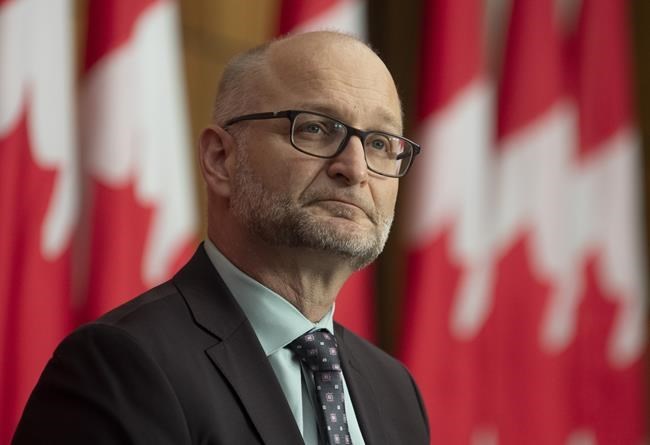OTTAWA — Conservatives will seek to amend a Liberal bill that would criminalize forcing people to undergo therapy to change their sexuality or gender.
In signalling their intention on Monday to move an amendment to the proposed law, the party also showcased efforts to bridge the gap between their social conservative base and the more moderate MPs in caucus.
Leading off the Conservatives' formal response on the second-reading debate for Bill C-6 was Conservative MP Eric Duncan, who is openly gay.
He called conversion therapy a "terrible, inhumane, dangerous practice" that needs to come to an end.
But before he rose, the MPs who had posed the first questions to Liberal Justice Minister David Lametti were from the party's socially conservative wing.
They raised their concerns the legislation goes too far and would make it illegal for, among other things, religious leaders or parents to talk to kids about the issue.
Duncan said Monday the party will seek to amend the bill to ensure that the government's stated intent — that the bill not criminalize conversations — will be explicitly reflected in the law.
In his speech, Duncan related his own story of coming out in 2017 and how he was greeted with support and love.
That is not always the case, he said, highlighting the stories of two men who died by suicide after years of struggling with their own sexuality.
Parliament must ensure the bill passes to send an important message, he said.
"It is OK to be gay. It is OK to be trans. It is right for them to live their lives as who they are and be who they are," Duncan said.
"Canadians know that subjecting anyone to conversion therapy is wrong and we must protect those who are vulnerable."
If passed, the law would ban conversation therapy for minors and also outlaw forcing an adult to undergo conversation therapy against their will.
The bill would ban removing a minor from Canada for the purpose of undergoing conversion therapy abroad. It would also make it illegal to profit from providing the therapy and advertising to provide it.
Conservative Leader Erin O'Toole has said the eventual vote on the bill will be a free vote for Tory MPs, as it is a matter of conscience. It's a follow through of a promise he made during the leadership race he won, a victory attributed in part to the influential social-conservative voting bloc within the party whose support eventually went to him.
On Monday, Conservative MP Cathay Wagantall — who is sponsoring a private member's bill to ban sex-selective abortion — said the bill restricts freedom of choice and expression for Canadians, including LGBTQ2 individuals.
She cited the case of a woman who had undergone transition and regretted it, suggesting the bill would criminalize her ability to speak out about her experience to warn others of the consequences.
Also on his feet was failed leadership contender Derek Sloan, who had made an assertion the bill would criminalize conversations between parents and their children an element of his leadership campaign.
On Monday, he raised concerns the bill, as written, would criminalize prayer.
The Liberals have insisted the bill does not criminalize ordinary conversations that are meant to provide guidance to those questioning their gender or sexuality.
"What we are banning is a practice," Lametti said in response to Sloan.
"There is a great difference whether one is in discussion or whether one is praying. There is a great difference between trying to determine who someone is on the one hand and telling someone that who they are is problematic or wrong, and then trying to change it to something else."
The Liberals have not declared definitively whether they'll make the vote free for their MPs.
NDP Leader Jagmeet Singh has said his caucus will vote for the bill, though NDP Randall Garrison said Monday he believes it doesn't go far enough in outright banning the entire practice of conversion therapy.
This report by The Canadian Press was first published October 26, 2020.
Stephanie Levitz, The Canadian Press




